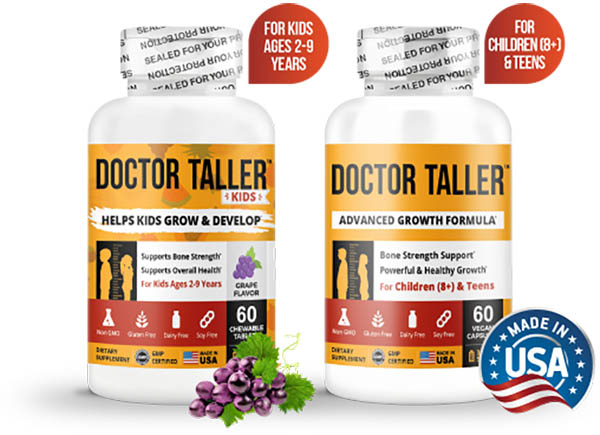In this blog post, we embark on an enlightening journey to explore the fascinating realm of human growth and the role that essential vitamins play in helping individuals reach new heights, quite literally! Whether you’re an aspiring basketball player hoping to touch the rim or simply aiming to gain a few extra inches, the secret might just lie within your daily diet. Join us as we unveil the top 8 essential vitamins that can be the key to unlocking your vertical potential, while also delving into the best dietary sources that provide a natural boost to your growth aspirations. So, without further ado, let’s dive into this informative exploration and discover the path to a taller you!
What are vitamins?
Vitamins, the indispensable components of our overall health, play a pivotal role in ensuring the normal functioning, growth, and development of our cells. These vital micronutrients, of which there are 13 in total, can be broadly categorized into two groups: fat-soluble and water-soluble.
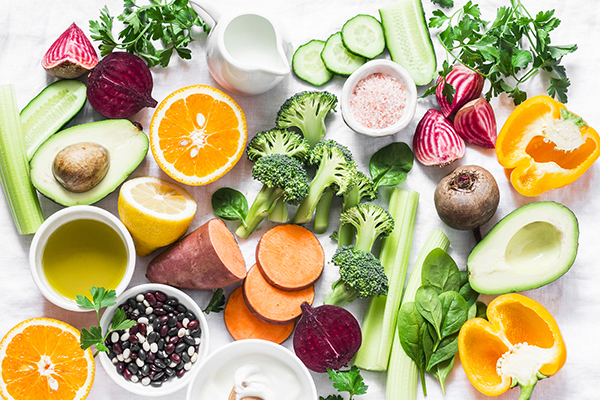
Which vitamins should you use to improve your height?
Vitamin D
Vitamin D is one of the most important nutrients that contribute to making bones long and strong. It is an excellent choice in pairing with calcium to boost the absorption process of calcium in the vitamin. Low vitamin D levels might cause weaker bones and delayed growth, thereby impacting height significantly.
Vitamin D is also called the sunshine vitamin. So, when your skin is exposed to sunlight, your body can make this vitamin itself. Or you can get it from foods, like red meat, egg yolks, liver, salmon, mackerel, mushrooms, milk, dairy products, cereals, and orange juices.
Vitamin B1
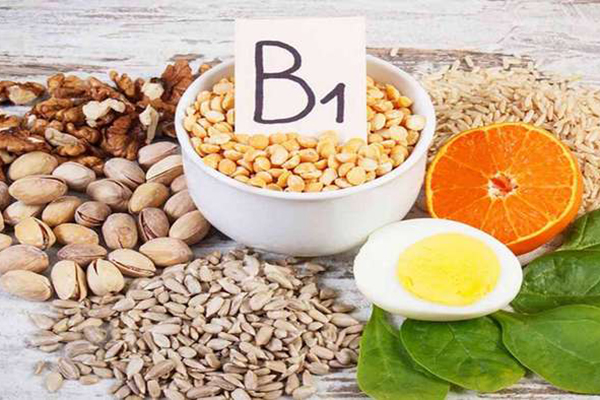
Vitamin B1 helps the body use carbohydrates for energy, supporting physical well-being. Although it does not contribute to height directly, it might help you gain optimal height in this regard. It also regulates digestion and contributes to maintaining a healthy heart and nervous system.
Good sources of vitamin B1 include pork, fish like tuna, salmon, and mussels, black and green beans, brown rice, and asparagus.
Vitamin B2
Vitamin B2, or riboflavin, is a vital nutrient for the growth and development of body cells. It not only assists the growth of bones but also hair, skin, and nails. You easily find it in low-fat milk, yogurt, eggs, pork, beef, salmon, spinach, asparagus, almonds, mushrooms, avocados, and green beans.
Vitamin B6
Vitamin B6, or pyridoxine, is necessary for normal brain development and for making the nervous system and immunity healthy. It plays a vital role in creating hemoglobin, which helps transfer oxygen through the body.
The following are good sources of vitamin B6, including bananas, chickpeas, tofu, potatoes, nuts, liver, tuna, salmon, chicken breast, squash, raisins, spinach, onion, and watermelon.
Vitamin B12
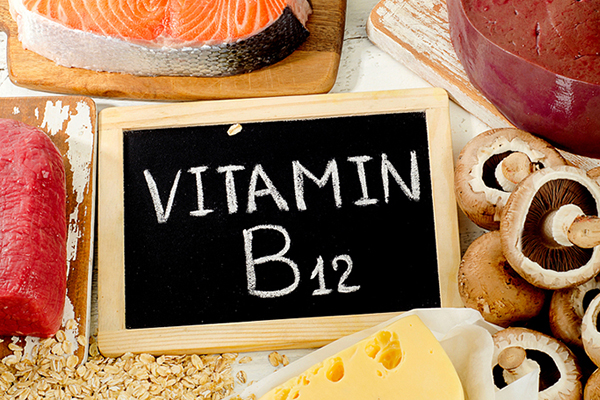
Vitamin B12 is essential for a healthy nervous system and blood cells because it helps carry oxygen from your lungs to the rest of the body. This nutrient is naturally found in animal products, so deficiencies can happen if you are on a vegan or vegetarian diet.
Add fish, shellfish, meat, poultry, eggs, milk, dairy products, cereals, soy products, and nutritional yeast to supplement enough vitamin B12. In case you are following a strict diet, you should take vitamin B12 supplements (less than 2.4 mcg per day).
Vitamin C
This water-soluble vitamin plays a critical role in supporting different functioning. It contributes to promoting the teeth and bones and strengthening their growth. It is also rich in antioxidants that assist immune health and prevent illness.
Citrus fruits, tomatoes, berries, potatoes, brussels sprouts, and peppers are rich sources of vitamin C
Vitamin A
The main function of this nutrient is to support eye health. It is also beneficial in keeping your skin healthy, supporting your reproductive and immune systems, and promoting tissue and bone repair. Good sources of vitamin A include eggs, cheese, milk, yogurt, sweet potatoes, spinach, carrots, liver, salmon, and mackerel.
Vitamin K2
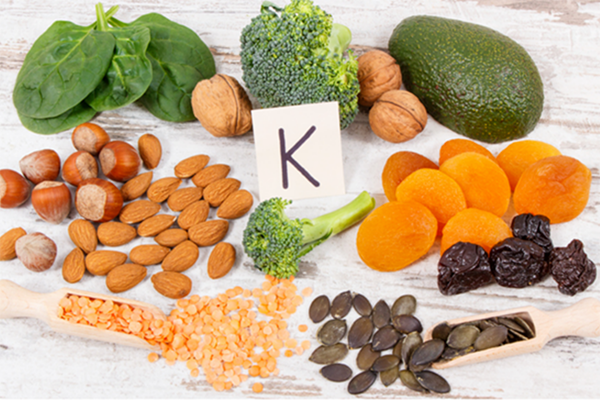
In addition to vitamin D and calcium, vitamin K2 has been recognized as one of the essential vitamins that assist in building longer and stronger bones in children. Although it is a fat-soluble vitamin, it is not stored in the body. That is why you need to focus on vitamin K2-rich foods, such as meat, yogurt, cheese, and fermented soy products.
What are the signs of a vitamin deficiency?
A vitamin deficiency is often the result of an inadequate diet, one that consistently falls short of providing your body with the essential nutrients it needs. When your diet lacks the necessary vitamins, various signs and symptoms may manifest, indicating an imbalance in your body’s nutrient intake. Recognizing these signs early on is crucial for maintaining your overall health and well-being.
- Low Energy and Fatigue: One of the most common signs of a vitamin deficiency is persistent low energy and fatigue. When your body lacks essential vitamins, it struggles to produce the energy needed for everyday activities, leaving you feeling constantly drained.
- Dry Skin and Hair: Inadequate vitamin intake can lead to dry, lackluster skin and brittle hair. Vitamins play a pivotal role in maintaining healthy skin and hair, and their absence can result in noticeable changes.
- Loss of Bone Density: Insufficient vitamin intake, particularly vitamin D and calcium, can lead to a decrease in bone density. Over time, this can increase the risk of fractures and osteoporosis.
- Easy Bleeding and Bruising: Vitamins like vitamin K are essential for proper blood clotting. A deficiency in this vitamin can lead to easy bleeding and bruising even from minor injuries.
- Depression: Studies have shown a connection between certain vitamin deficiencies and an increased risk of depression. A lack of essential vitamins can affect brain function and mood regulation.
- Poor Wound Healing: Adequate vitamins are necessary for the body to heal wounds effectively. A deficiency can result in delayed or impaired wound healing.
- Skin Color Change: A change in skin color can be an indicator of various nutrient deficiencies. For example, a deficiency in vitamin B12 can lead to a pale or jaundiced appearance.
- Irritability: Nutrient imbalances can affect your mood and lead to increased irritability or mood swings.
- Predisposition to Infections: Vitamins like vitamin C and vitamin D play a crucial role in supporting the immune system. A deficiency in these vitamins can make you more susceptible to infections.
If left unaddressed, a vitamin deficiency can progress and lead to more serious health issues, including:
- Weakness of the Fingers and Toes: Certain vitamin deficiencies can cause weakness and numbness in the extremities, particularly in the fingers and toes.
- Decreased Sensation of the Feet and Hands: A long-standing deficiency can result in decreased sensation and nerve damage in the hands and feet.
- Vision Loss: Inadequate intake of specific vitamins can contribute to vision problems, potentially leading to vision loss if not corrected.
- Behavioral Changes: Nutrient imbalances can impact brain function, potentially causing behavioral changes or cognitive difficulties.
- Shortness of Breath: Some vitamin deficiencies can affect lung function, leading to shortness of breath and respiratory issues.
- Memory Loss: Cognitive functions can be impaired by certain nutrient deficiencies, potentially resulting in memory loss and cognitive decline.
- Rapid Heart Rate: In severe cases, a vitamin deficiency can affect the cardiovascular system, leading to a rapid heart rate and other heart-related issues.
In conclusion, maintaining a well-balanced diet rich in essential vitamins and nutrients is crucial for overall health. Recognizing the signs of a vitamin deficiency and taking appropriate measures to address it can help prevent the development of more serious health conditions. Always consult with a healthcare professional if you suspect you may have a vitamin deficiency to receive proper guidance and treatment.
How to get the daily recommended vitamins?
If you consume a varied diet containing proteins, whole grains, beans, dairy, veggies, and fruits, you can get all the recommended vitamins. The foods mentioned above are rich in the necessary vitamins to help you grow taller. But you should focus on those rich in vitamin D and calcium, or take vitamin D supplements because it is not found in many foods.
Here is a one-day sample menu that has 2,000 calories and the daily suggested amounts of vitamins.
| Breakfast |
|
| Snack |
|
| Lunch |
|
| Snack |
|
| Dinner |
|
Final word
The aforementioned vitamins play a pivotal role in fortifying and nurturing robust bones, thereby facilitating the body’s growth in a definitive manner. Hence, it is imperative to incorporate them into your diet through the consumption of a diverse range of vegetables, fruits, proteins, legumes, nuts, and dairy products on a daily basis. To maximize the efficacy of this approach, it is advisable to complement your dietary choices with regular physical activities and ensure that you receive an adequate amount of restorative sleep, thereby enhancing both your body’s growth potential and metabolic efficiency.



